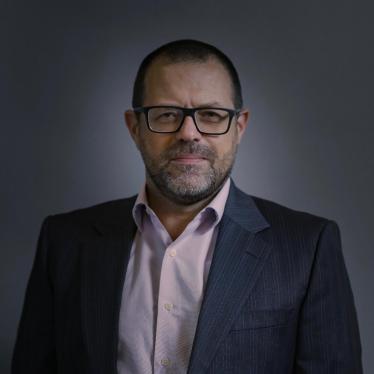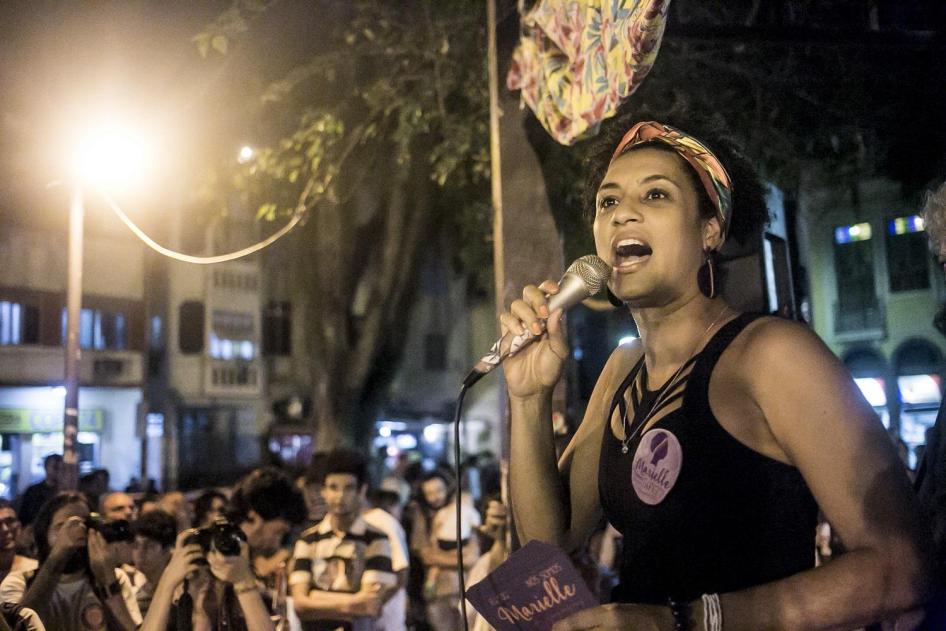Human rights defender and Rio de Janeiro councilwoman Marielle Franco should have been with us today, celebrating the 20th anniversary of the United Nations Declaration on Human Rights Defenders. And she should have been here tomorrow, remembering the 70th anniversary of the Universal Declaration of Human Rights.
Without Marielle, who was gunned down almost nine months ago, those anniversaries are tinged with profound sadness.
Were she with us, Marielle would no doubt speak about those two fundamental documents, not as a scholar of the law, but from her own experience. She would likely show us what human rights meant to her as a bisexual Afro-Brazilian growing up in the Maré favela of Rio de Janeiro, while stressing that human rights are for every Brazilian, no matter their background.
She would surely use the opportunity to advocate for the causes that drove her life: the rights of LGBT people, Afro-Brazilians, and the poor to be free from violence and discrimination; and all Brazilians’ rights to a good education and health care. She would likely inveigh, as she often did in her public appearances and on social media, against military-style public security policies that lead to police officers killing favela residents—and being killed themselves.
As it is, many Brazilians wonder what was so special about Marielle’s killing. Every time an article about Marielle appears—or civil society calls on authorities to solve her murder—some people ask: why should we make a fuss about the councilwoman’s murder when more than 60,000 people are killed each year in Brazil?
And, at a certain level, they are right. One human life is no more precious than another, as the first words of article 1 of the universal declaration of human rights make clear. “All human beings are born free and equal in dignity and rights.”
But when four bullets hit Marielle’s head, we lost someone who was fighting for all of us. When she called for a police force that would dialogue with civil society and become more efficient at reducing crime and violence—when she advocated for the families of police officers killed in the line of duty—when she pressed for a society in which all would be welcome—she was engaging the struggle for Brazil. She was fighting so that this year, we would not see another 60,000 people killed.
The gunning down of Marielle sent a sinister message to human rights defenders: “Beware what you say; you are in the line of fire.” The killers murdered her brazenly, in downtown Rio de Janeiro, despite her high profile, counting on Brazil’s poor record of ensuring justice for homicides.
That is why it is so important to solve Marielle’s murder.
A big part of making human rights meaningful is the obligation of governments to investigate human rights violations and ensure accountability and redress. The Declaration on Human Rights Defenders also urges governments to take “all necessary measures” to protect human rights defenders.
And Brazil does have a program for the protection of human rights activists. It assists 550 people nationwide. After Marielle’s death, the government more than tripled the program’s budget over the 2017 allocation—to almost 15 million reais (USD4 million.) But the program is still operating on the basis of a decree that could easily be revoked.
The human rights and justice ministers, who will take office on January 1, should work with Congress to strengthen the program by establishing it in law, providing adequate funding and ensuring that federal and state police, prosecutors, and other authorities take seriously the protection of defenders.
There are many activists in Brazil who are carrying on Marielle´s fight. It is critically important that they be protected.
And, of course, that Marielle´s killers are brought to justice.








